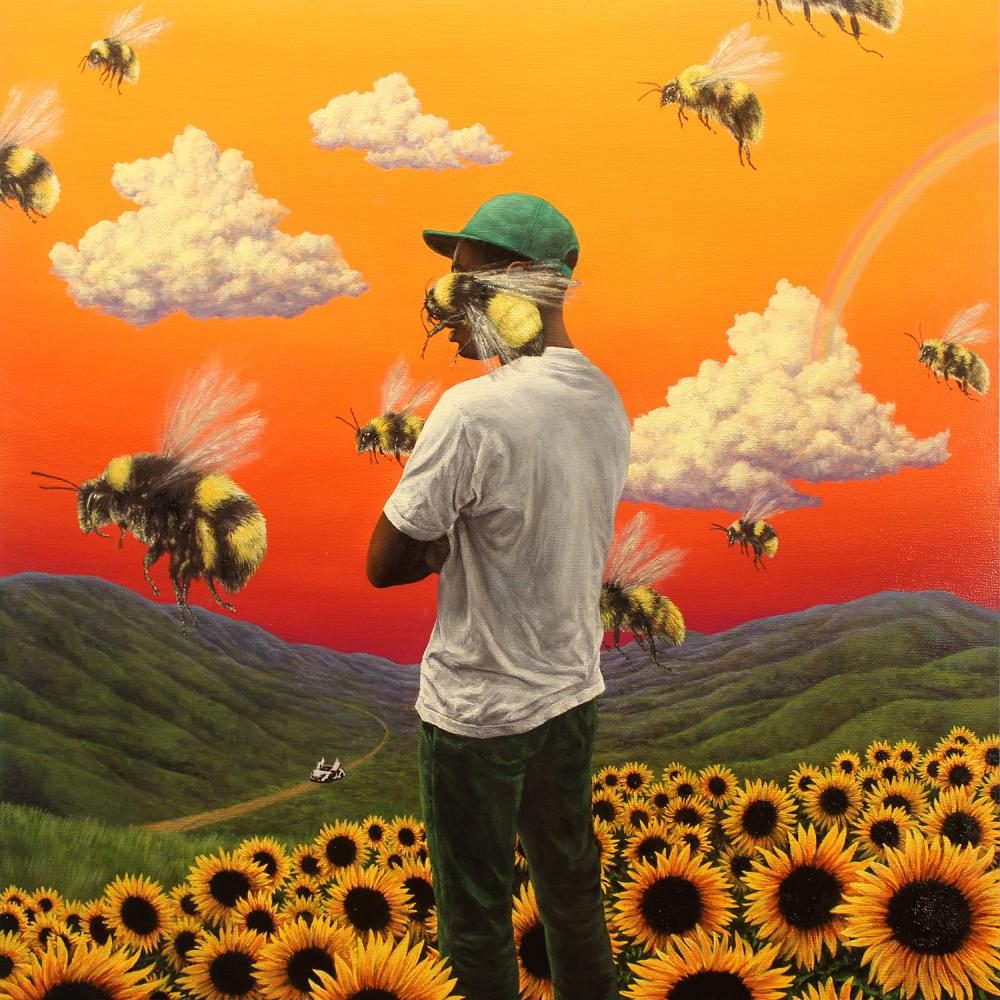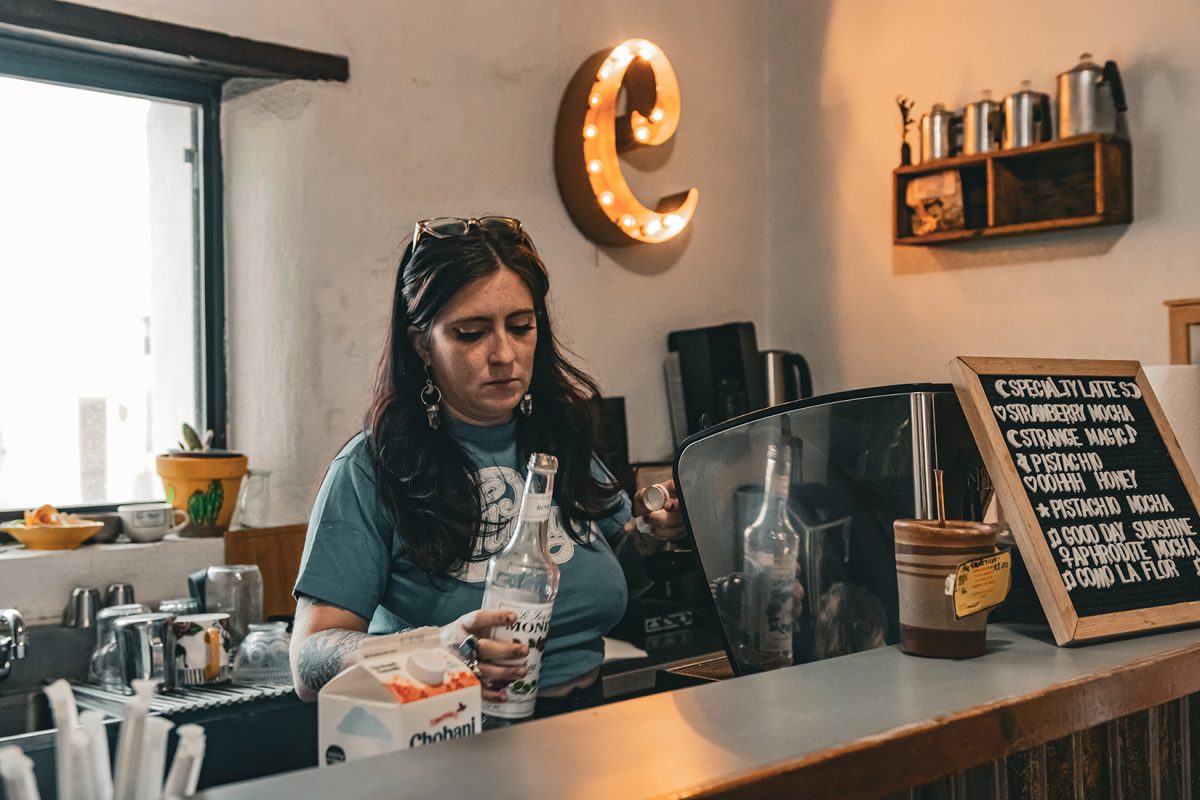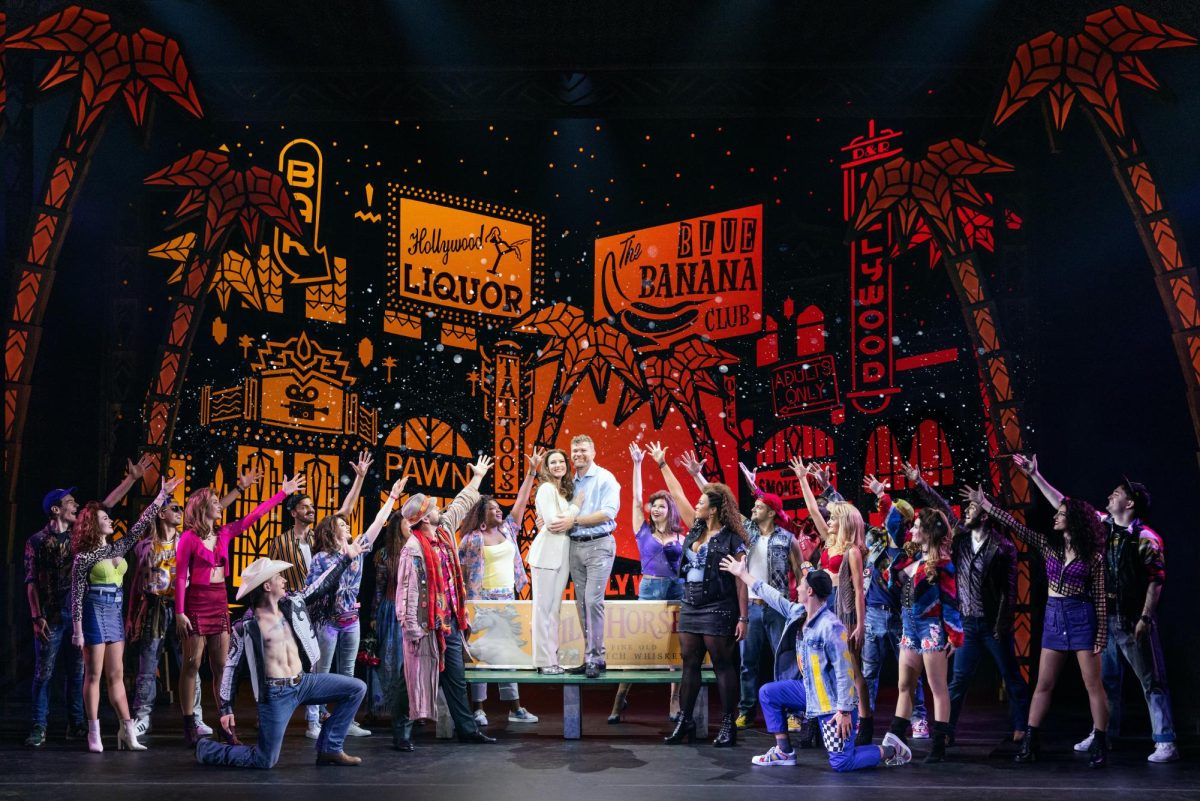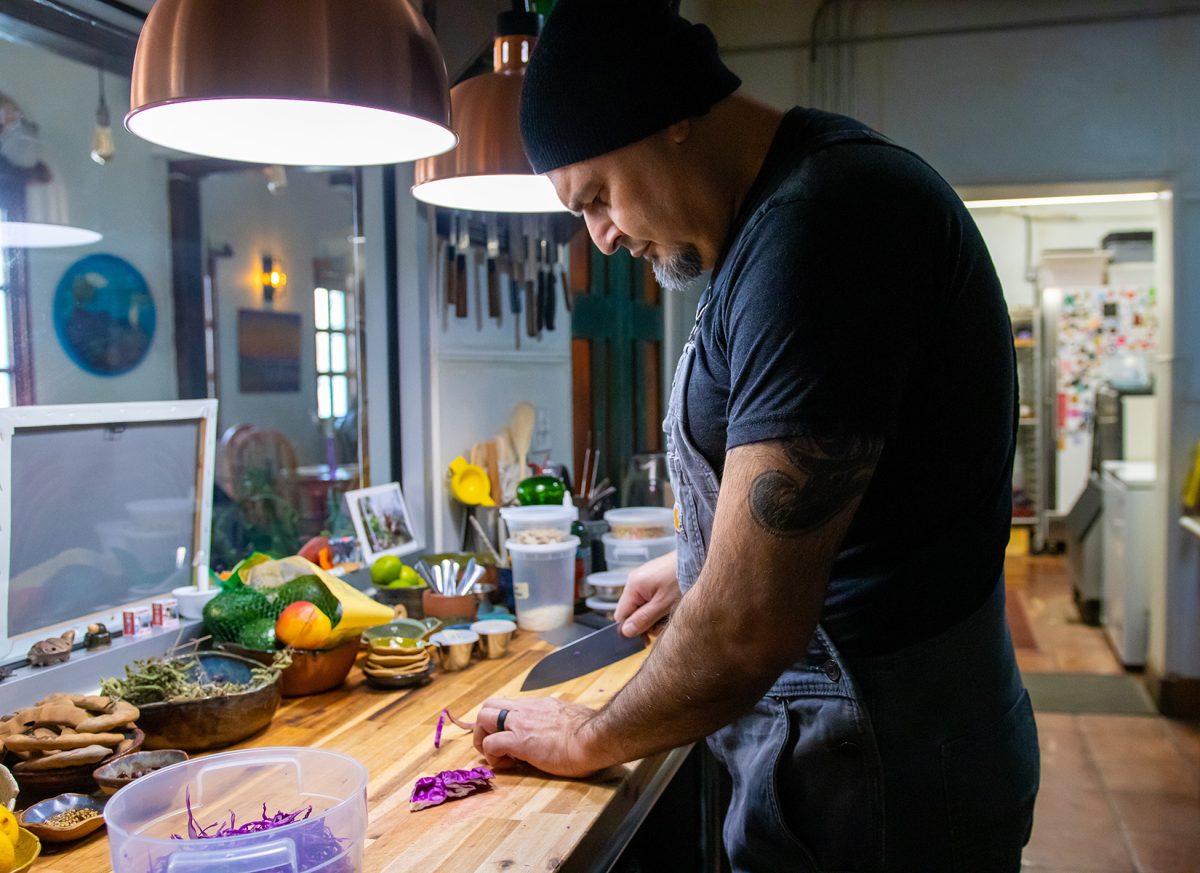“Flower Boy” is truly for everyone, people who never really liked Tyler the Creator’s previous work, die-hard fans, those who like jazz, those who enjoy solid production values and those who like R&B. “Flower Boy” is an album for the true music aficionado and should not be slept on.
The maturity is shown through the 14-track album and it makes for a noteworthy accomplishment in Tyler’s illustrious discography.
For the first time since his freshman album, “Goblin,” Tyler hyped this project unlike any of his previous albums, truly wanting everyone to listen to it. He previewed the album with four singles that quickly generated popularity—”911/Mr. Lonely,” “Who Dat Boy,” “Boredom” and “I Ain’t Got Time!”
Bouncing around the internet about a week before the album’s intended release, many users got access to a leaked stream of the full album, and surprising speculations came from the first impressions. Throughout the album, Tyler alludes to being gay, which is a shock, since in the past he was criticized heavily for coming off as homophobic.
He raps on “I Ain’t Got Time!” “Next line will have ’em like ‘whoa’/I’ve been kissing white boys since 2004.” It’s very unclear whether or not this is true because of Tyler’s humor that steps over boundaries very frequently, but on this album he gives forth a new sincere approach to the topic. He also talks about an infatuation with Leonardo DiCaprio and about a mysterious man who resembles River Phoenix.
Despite these revealing undertones, “Flower Boy” is far from a coming-out-of-the-closet album for Tyler. In fact, Tyler compiles his best production yet with harmonic vocals, thrashing rap verses, melodic instrumentals and strong guest appearances to make for a defiant summer album.
He kicks the album off with a self-exploration track, “Forward,” which allows him to take a step back and reflect on his life—exploring his rise to fame, his suicidal and lonely thoughts and a small glimpse into the society he almost feels disgusted with.
But the melodic tone quickly transitions to a lighter mood with “Where This Flower Blooms,” which features Frank Ocean. This song features a handful of twists in production but is nonetheless one of the most mature sounding tracks in Tyler’s discography. One instance of this is his transition from electric keyboards to swift piano sounds.
The album’s transitions and skits all serve a purpose, unlike some of his previous work when it felt like he would go on an experimental production ramble. He transitions from one track to the next very smoothly.
On “Sometimes…” he calls in on a radio show and requests the next track, “See You Again,” which is his favorite song on the album. The track is about existing with the love of his life only in a fantasy world, as he poetically sings, “You exist behind my eyelids/I don’t wanna wake up.” His vocals intertwine with Colombian singer Kali Uchis’, making the track sound harmonic, and then shifts to hard-hitting rap vocals.
The hip-hop energy then moves to “Who Dat Boy” and “Pothole,” which effectively showcase Tyler’s strength at rapping.
However, if one is looking for a hip-hop centric album, “Flower Boy” may not be the answer. Tyler experiments with all sorts of indie and R&B sounds, which shows off his creative edge and overshadows his rapping talents.
With the help of Estelle’s soft voice, Tyler slows the record back down on “Garden Shed,” and brings in guitars and a light drum kick for a memorable snippet. He continues the soft beat on “Boredom,” where he brings in British singer Red Orange County for, as what Tyler describes as a song that sounds “summer as hell.”
“I Ain’t Got Time!” brings the tempo of the album back up on the next transition. He produced the track at Kanye West’s house and originally wanted the song for West, but Kanye didn’t like it, according to Tyler. He then brings the same tempo on “911/Mr. Lonely,” which adds to the theme of loneliness that Tyler is experiencing.
He throws in some production heavy tracks toward the end, such as “Dropin’ Seeds,” “Glitter” and “Enjoy Right Now, Today.”
But right before the album ends, Tyler drops one of the most established tracks of his career with “November.” He uses the metaphor of “November” to take the listener back to a better time in someone’s life as he sings, “Tell me, what’s your November? Is it a person?/Mine was the summer ’06..”
Although his maturity has exceeded all expectations, one thing to note about this album is the theme of depression he is still struggling with. Previously, he’s written about how lonely he has felt and all of his insecurities, but this album resonates like a longing for more.





